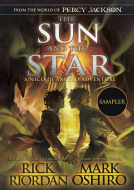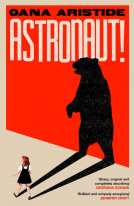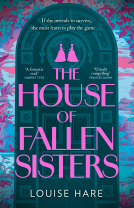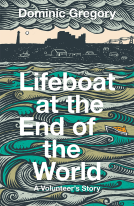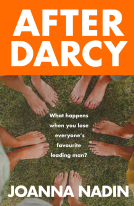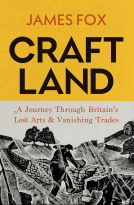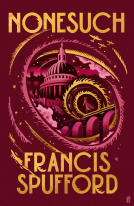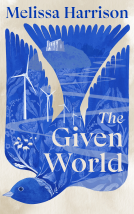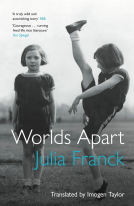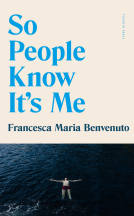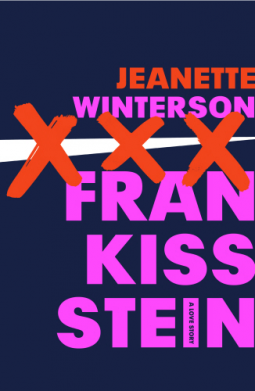
Frankissstein
A Love Story
by Jeanette Winterson
This title was previously available on NetGalley and is now archived.
Send NetGalley books directly to your Kindle or Kindle app
1
To read on a Kindle or Kindle app, please add kindle@netgalley.com as an approved email address to receive files in your Amazon account. Click here for step-by-step instructions.
2
Also find your Kindle email address within your Amazon account, and enter it here.
Pub Date 28 May 2019 | Archive Date 16 Oct 2019
Random House UK, Vintage Publishing | Jonathan Cape
Talking about this book? Use #Frankissstein #NetGalley. More hashtag tips!
Description
***LONGLISTED FOR THE BOOKER PRIZE 2019***
**LONGLISTED FOR THE COMEDY WOMEN IN PRINT PRIZE 2020**
A radical love story for right now, from 'one of the most gifted writers working today' (New York Times).
In Brexit Britain, a young transgender doctor called Ry is falling in love – against their better judgement – with Victor Stein, a celebrated professor leading the public debate around AI.
Meanwhile, Ron Lord, just divorced and living with Mum again, is set to make his fortune launching a new generation of sex dolls for lonely men everywhere.
Across the Atlantic, in Phoenix, Arizona, a cryonics facility houses dozens of bodies of men and women who are medically and legally dead… but waiting to return to life.
But the scene is set in 1816, when nineteen-year-old Mary Shelley writes a story about creating a non-biological life-form. ‘Beware, for I am fearless and therefore powerful.'
What will happen when homo sapiens is no longer the smartest being on the planet? Jeanette Winterson shows us how much closer we are to that future than we realise. Funny and furious, bold and clear-sighted, Frankissstein is a love story about life itself.
‘Jeanette Winterson’s Frankissstein won’t disappoint. A modern take on Mary Shelley’s Frankenstein, it’s a fascinating and engrossing look at AI, science, gender fluidity and, ultimately, what it really means to be human.’ Nicola Sturgeon, New Statesman
Advance Praise
'Winterson reboots Mary Shelley's Frankenstein for the 21st Century, launching us into a hold-on-to-your hat modern-day horror story about very modern-day neuroses and issues'
BBC News
'Winterson reboots Mary Shelley's Frankenstein for the 21st Century, launching us into a hold-on-to-your hat modern-day horror story about very modern-day neuroses and issues'
BBC News
Available Editions
| EDITION | Other Format |
| ISBN | 9781787331402 |
| PRICE | £16.99 (GBP) |
| PAGES | 352 |
Average rating from 51 members
Featured Reviews
 Educator 350559
Educator 350559
Jeanette Winterson is one of my favourite authors, so when I saw this I knew I had to request it. This book not only lived up to my expectations, but exceeded it.
This book is set in the past, but interwines with the present. Its set in the 1800s and focuses on Mary Shelley and her story of Frankenstein. Winterson delves into Mary Shelley's life, her miscarriages, and her marriage. It is told through her voice, but her story also intertwines with the characters of Winterson's updated Frankenstein love story.
It explores AI, past, present, and future technology. Will it live up to our expectation? Will we be able to live forever through technology? What will be our purpose if we do? The idea of monsters we create (internally and externally) and those that already exist around us. Love, gender fluidity, bodies, misogyny (Byron/Ron and Shelley).
 Jim S, Reviewer
Jim S, Reviewer
Some people won’t like this book at all but I liked it a lot. It’s completely irreverent about everything from Romantic poets to sex toys and plays around with ideas about identity, mind and body, and science. It has also got a bit to do with Mary Shelley’s novel!
It starts with the Shelleys and Byron stuck in a rain swept villa in the Swiss Alps and waiting for it to stop while engaging in conversations about life and the universe as they might well have done. It’s the kind of talk which might also have led Mary to contemplate her famous novel.
Then the narrative switches to the present day where the protagonist is now Ry Shelley, a trans medic supplying a scientist, Victor Stein, with redundant limbs for experiments and research - on a legitimate basis as well. Somewhere along the way Ry and Victor become lovers and also hook up with Ron Lord (Our Lord and Lord Byron) who is planning to build a new generation of sex bots in Wales and make a fortune. The other character featured in both narratives is Claire, the half sister, and less intelligent half, of Mary. Everyone meets up at some cryogenic venue where people queue to have their brains plasticised on the off chance of immortality.
Other people pop up, so Ada Lovelace and the Babbage Engine get a look in and Mary gets to meet her literary creation, Frankenstein, in Bedlam, the infamous London Asylum. Meanwhile the book plays with ideas about what it means to create the artificial intelligence which can have life and whether a bot, however sophisticated, can think independently. That touches on artistic creativity and whether art always requires an elusive extra spark that a machine can never provide.
The narrative switches continue and eventually their wild lifestyle catches up with the Romantic coterie. Mary loses two children to fevers and, as their relationship is unravelling, Shelley drowns and then Byron dies in Greece. It is towards the end of her life that she encounters Ada.
That’s it really. Victor Stein turns out to be madder than first thought and intent on emulating his namesake in a modern digital way. The modernised Claire is a thick, born again Christian fundamentalist and it’s possible that the next generation of sex bots, quasi women to service men, are the real monsters in it all.
The book is darkly funny and it plays with some interesting ideas without going too deep. The reader can do that! The scope of the book takes in most of what we currently think of as life extending strategies and creative robotics while asking questions about what it means to be alive. It’s a good read but don’t take it too seriously and remember that it couldn’t have been written by a computer! Or, could it?
Mary Shelley’s Frankenstein was first published in 1818 and over 100 years later we’re still fascinated by the gothic novel about what it means to be human. Jeanette Winterson’s 2019 Frankissstein is a modern re-telling of this chilling tale set in predominately in Brexit Britain. However, The novel’s plot darts back and forth in time; from the 1800s and the story of Mary Shelley’s creation of Frankenstein and his monster, to the ‘present’ day with the growth of Artificial Intelligence (AI) and a completely different society on the horizon for our future.
Frankissstein’s mysterious and dark opening is set in Geneva, 1816 with the young Mary Shelley on the brink of writing her classic novel, accompanied by her husband Percy Shelley, Lord Byron, John William Polidori, and Claire Clairmont. Much of the writing about the past is based on facts from Shelley’s life, yet, Winterson has taken her full creative license to create intriguing conversations and events that add depth to the story and run in perfectly woven parallel to the plot set in modern-day, as these tales from different eras slowly move towards one another and the exciting climax of the novel.
In this fictional present or near future created by Winterson, a young transgender doctor, Ry, is becoming increasingly intrigued and beguiled by Victor Stein, a leading professor in AI. The plot also sees the introduction of journalist and feminist; Polly D, Christian; Claire and sex doll manufacturer with an interest in AI; Ron Lord. Meanwhile, housed in Arizona are biologically dead but cryogenically frozen humans. What would happen if these lives were bought back to life or if AI took over humans as the smartest being on the planet?
A contemporary tale of friendship, love and technology which examines the blurring of the gender binary and sexual orientation, looking ahead to a future in which, perhaps, these ideas and labels will no longer matter. Jeanette Winterson’s brilliantly chilling, darkly funny, and gripping novel shows us how close to the ‘future’ we really are and explores the relationship between technology, AI and humans to ask the questions, ‘what does it really mean to be alive?’ and ‘what does it mean to create life?’
 Paromjit H, Reviewer
Paromjit H, Reviewer
A breathtakingly brilliant re-interpretation of Mary Shelley's Frankenstein for our modern age of troubled political turbulence, so incredibly funny, smart, philosophical and satirical, weaving threads from the past, present and the impact of AI developments in the future. Jeanette Winterson has pulled off a scintillating and incisive retelling of the classic novel that posits that homo sapiens is far from the most intelligent force on earth, and provides irrefutable evidence, such as the examples of Trump and Bolsonaro, our modern day monsters of destruction. It asks what is reality, where all that is solid melts into air, what exactly is human consciousness, asking and re-defining what it is to be human, and whether we can transcend our time limited biological bodies to attain and embrace a AI immortality that will make gods of humans.
Gender fluidity, roles and expectations of women through the ages, sexism, and misogyny are explored through the various characters, such as Byron, Mary Shelley and the genius creation that is the bold and brash sexbot salesman and entrepreneur, Ron Lord, operating in a Brexit world. Lord is a divorced man, living with his mother in Wales, creating and developing a male utopia with his female sexbots that never say no to a man, bots that do not give rise to the problems men face with real life emancipated women. Ron Lord is a messiah of our disturbing world, claiming to solve issues of rape, assault and abuse everywhere, even within religion and the church. Dr Ry Shelley is transgender, having shifted reality to be who he wants to be, and in love with the famous Dr Victor Stein. In Phoenix, Arizona, humanity is preparing to rise from the ashes through the Alcor Life Extension Foundation, where the legally and medically dead are waiting to return to life.
The novel travels through bedlam, life, death, the 'Lazarus' resurrection, history, gender, class and inequality, our contemporary monsters running rampant, and with illuminating potential future AI realities. There are so many ideas and concepts in this fascinating and highly imaginative narrative that takes Shelley's Frankenstein and spins a philosophical and relevant feminist fable for our times that is simultaneously completely hilarious and thought provoking. Winterson is a gifted writer, and this novel is sheer magnificence, from beginning to end. A true gem, I particularly adored the character of Ron Lord. A highly recommended and sublime read. Many thanks to Random House Vintage for an ARC
 Claire C, Educator
Claire C, Educator
I wasn’t sure whether to request this or not - but I’m so glad I did. I worried some of the blurb might be hyperbole, but it’s incredibly well written. Thoroughly enjoyable and one I’ll reread.
Mary Shelley writes of her life, starting with the period in which she wrote Frankenstein. A trans doctor meets a man called Victor who wants to explore the possibilities of reanimation using all the power contemporary technology has to bear. A man called Ron (who was my favourite character by far) sells sex robots to the masses. Bedlam takes a new inmate who claims to be Victor Frankenstein. All of these stories interweave and overlap, creating a rich soup of ideas about what it is to be human, to be male or female or somewhere between, what it is to love and be loved, what life and death mean to the flesh and after flesh is long gone. Witty, clever, fascinating and darkly funny. I loved this.
 Kath B, Reviewer
Kath B, Reviewer
It's going to be hard to put in words exactly why I loved this book, especially without any spoilers. Although, being as it is a retelling of an old classic I'm not sure that spoilers are even possible!
Anyway, as is the vogue of the time, it's Frankenstein's turn to be reimagined. A task that I don't envy any author as it must be quite tricky to achieve a balance between old and new without alienating too many readers. Although I think the inclusion of sx-robots may have done that to a few people on their own. Me, I learned more than I even thought possible about them; fascinating stuff! I definitely want to hear more from Ron Lord - great character!
We have, in the present, a young transgender doctor, Ry Shelley, who falls in love with professor Victor Stein, a man who is championing AI with a view to using this to extend "life" beyond the original body. Meanwhile, we follow Mary Shelley as she starts to create, and write, her now famous book. Characters cross the boundaries between the two stories as reflections of each other but, as they are best left discovered as the author intended, I won't spoil them here.
There's definitely a lot of humour contained within the pages of this book. But there is also a lot of heartache and pain too. Not just with Ry's struggles with being transgender, and acceptance. We also have healthy debate about AI, something that really does interest me and is quite prevalent in the media these days. There's also a few sly digs at politics, tongue in cheek-wise rather than grandstanding I hasten to add. There was definitely a lot to think about along the way but not so much as to be distracting. It's definitely a book that can be read on many levels and would definitely make an excellent book-club read.
All in all I had an absolute blast reading this book and, even several days after finishing, it hasn't quite left me yet. I'm still pondering one or two things. It's my first read by this author but you can guarantee it won't be my last. My thanks go to the Publisher and Netgalley for the chance to read this book.
Frankissstein is a fresh, thoughtful novel that blends a retelling of Frankenstein using AI with the story of Mary Shelley thinking about life and death. In the modern day, Ry—a young trans doctor in love with Victor Stein, professor working on AI—meets Ron Lord, businessman from Wales trying to make his range of sex robots sell. Ry met Victor at a cryonics facility in Arizona, but now Victor is working on something and Manchester and Ry, Victor, Ron, and the religious Claire somehow all become part of it. And in 1816, Mary Shelley starts work on Frankenstein, thinking about vitality and the moment of life. Across both narratives, questions are asked about what makes life, what is the future of humanity, and what control do we have over our own and other bodies?
There have been a lot of retellings of classic novels over the past few years and a lot of attempts to fictionalise the story of Frankenstein's creation for its 200 anniversary. What Winterson manages to do with Frankissstein is blend the two in a way that makes sense, allowing modern questions of AI to mix with Shelley's look at life creation and ethics, but also making a novel that says more than that. The modern storyline is often funny and engages with medical concepts of the body as well as how technology can remove people from traditional ideas of a body in a way easily comparable to the manufactured body of the Creature in Frankenstein. Ry being trans is used to explore his own sense of body and the fact that people often change parts of their bodies even without digital technology or robotics.
Winterson's version of Mary Shelley's life—not only Villa Diodati and the creation of Frankenstein, but going beyond that to her experiences of death and to the work of Ada Lovelace—is highly fictional, based around conversation rather than reciting historical fact. This means that it is mostly about debate and about thoughts on artificial life and related areas, including gender roles. The key figures are painted as complex, not simple heroes and villains, which is refreshing in the subgenre of fictionalised versions of the people Mary Shelley knew, and it feels like one of the few that allow Mary Shelley to think and consider the issues she raises in Frankenstein and clearly have an interest in scientific thought, but also be a woman in a strict society who runs away because she falls in love with a poet.
Considering the many afterlives of Frankenstein as a novel and how unfaithful most of them tend to be, Frankissstein shouldn't be a shock, but it also feels fitting, sewing together parts of Mary Shelley, other stories, quotations, and a new twist on a Frankenstein-inspired narrative that considers the human body, its changeability, and its future. Both witty and informal, and engaging with interesting debate, Frankissstein is unsurprisingly good. It isn't really about the story as much as what it is saying (which may be what a lot of people think about Frankenstein, too).
I really wasn't sure what to expect from this and was actually in two minds about requesting it for review - although I like Jeanette Winterson's writing and am intrigued by Mary Shelley as a writer, I was less sure about the modernisation of 'Frankenstein' as a story about artificial intelligence and the future of extending human consciousness after death. I thought it might be a lot about medical morality and a bit unbelievable.
I was wrong to doubt Winterson. She has created a fascinating novel which is actually hard to describe in a way that does it justice. Partly it's a kind of revisiting of 'Frankenstein' in the modern day with a trans doctor grappling with the implications of extending life (in some form, maybe brain activity separate from bodily function) while also encountering advances made in robotics and artificial intelligence. Entertwined with this is the story of Mary Shelley and her life, especially the period in which she was writing the original 'Frankenstein' novel. However, this dual narrative description doesn't really cover the intricacies of the book where fictional characters start to collide with historical ones, big ideas are explored and the reader is left with plenty of food for thought. What makes this book quite astounding though is the extent of what Winterson has crammed in: Brexit digs, literary references, humour (Ron Lord is grotesquely, hilariously awful), scientific theory, ideas about gender and identity, vivid description and comments on modern society and attitudes to change.
I still don't think I've managed to cover everything from this extraordinary book, and I'm also very aware that I'll continue to make connections and think about this novel long after I have put it down.
I'd recommend this to anyone looking for a thought-provoking read that also manages to be wildly entertaining and full of wry humour. The ideas presented might be big and scary and complex, but the way they are written is just brilliant.
 Reviewer 203820
Reviewer 203820
A young transgender doctor, Ry Shelly, is in the middle of the debate of artificial intelligence. What is possible, what is desirable? What makes a human being a human being and could bots be the better versions of us? AI will surely solve a lot of problems, but won’t it create new ones at the same time? Ron Lord is one of the people who will invest in the new technology and hopes to make a lot of money with it; his aim is the creation of the next generation of sex dolls which fulfil all wishes. At the same time, we travel back to the year 1816 when a young woman turned the idea of creating a human being into a highly praised novel: Frankenstein.
With “The Gap of Time”, Jeanette Winterson already showed for me that she is a highly gifted author who can use an old plot and turn it into something completely new that is not only highly entertaining but also beautifully and intelligently written at the same time. In her latest novel, she turns to Mary Wollstonecraft Shelley’s Frankenstein and takes the idea if man as the creator of human being on a higher and contemporary level.
I love the idea of taking and old plot and transferring it to our time, the Hogarth Shakespeare series has clearly proven that this can be something really worth undertaking. The novel skilfully woves the time of Mary Shelly’s stay at Lake Geneva, when she wrote her story of the famous monster, and Ry Shelley’s journey through the world of AI. At times, the dialogues are simply hilarious – I especially liked the one about the sex dolls – at others, the is a serious and in-depth discussion about the chances but also the ethics of AI. And she also raises the big questions of life and death and what comes after the later.
I read an electronic version of the book and marked so many sentences that I now have a large list of quotes that I would eagerly share but that goes far beyond a review. Apart from the wonderful language, there are so many allusions and cross-references that it is a great joy to decipher the novel, beginning with the names of the characters and ending at films such as Blade Runner and the Greek mythology. All in all, a brilliant piece of work that surely is among the more demanding novels and therefore, again, underlines Jeanette Winterson’s place among the highest ranked contemporary authors.
Readers who liked this book also liked:
Rick Riordan; Mark Oshiro
Children's Fiction, LGBTQIA, Teens & YA
Louise Hare
Historical Fiction, Multicultural Interest, Mystery & Thrillers
